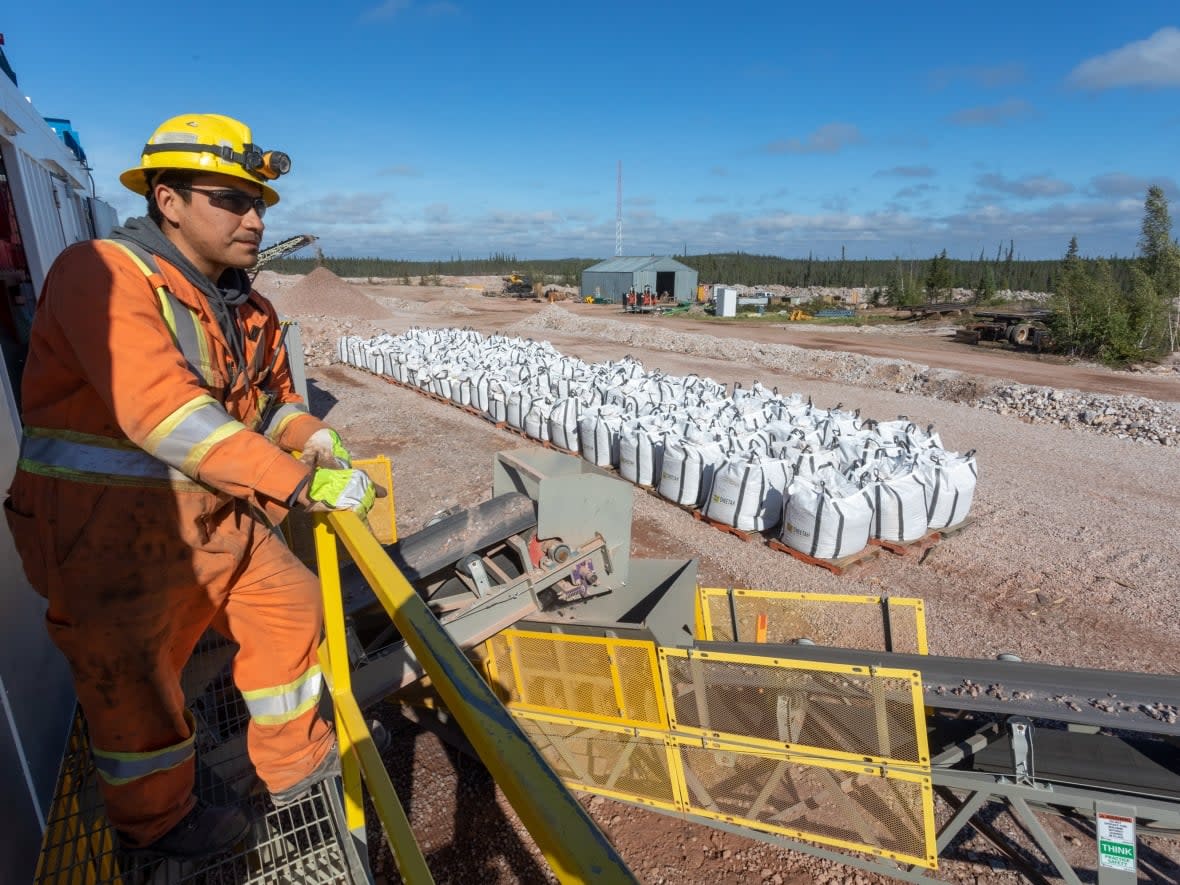Rare earth minerals could help in climate change fight, but mining raises environmental concerns: expert

While rare earth minerals are now being touted as a key part of efforts to reduce greenhouse gases, there are environmental concerns in extracting these minerals from the ground, says an expert in environmental considerations around mining.
Demand is growing for rare earth elements — a group of metals and minerals that includes lithium, graphite, nickel, cobalt and copper that are used in batteries for everything from vehicles to smartphones.
Rare earth elements are being prioritized for investments in exploration, production and processing as part of Canada's critical minerals strategy, which was announced last month.
Some of Canada's experience in mining things like gold or potash is now being used to hunt for rare earth minerals, and Saskatchewan is playing a role through the Vital Metals rare earth processing plant in Saskatoon, which is expected to begin production in the next couple of months.
The plant will process rare earth elements from the Nechalacho rare earth mine in the Northwest Territories before shipping the refined product to another facility in Norway.
But Isabelle Demers, the Quebec-based Canada Research Chair in Integration of Environment in the Mine Life Cycle, says while Canada has the technology to mine these minerals, it's different than mining something like gold.
"We definitely need to produce more of these minerals, and ideally we want to produce them in a responsible manner," Demers said in an interview with CBC Saskatchewan's Morning Edition.
"They are very important because up to now they have been mined mostly in China and other countries, and demand was quite low compared to the upcoming demand to produce all those batteries to meet the commitments for climate change adaptation."
Besides the environmental footprint of the mine itself and the waste it produces, there are concerns elements like lithium or strontium could be released into the environment.
"Those [are] rare earths that are already locked into rock, and once exposed to the atmosphere … they could change form and go into a soluble form and into the environment," Demers said.
"Those are elements that we have not seen as much with base-metal mining or gold mining."
Plant draws on Sask.'s mining expertise: manager
At the Saskatoon Vital Metals processing plant, general manager Vincent Laniece said equipment is being assembled and the facility should be up and running in a couple of months.
The plant processes metals and minerals extracted at the Nechalacho mine into a concentrate.
That product will then be shipped to another facility in Norway for the next step, where the rare earth elements will be separated.
Laniece said while the materials are mined in the Northwest Territories, Saskatoon was chosen for the plant site because of the mining expertise in the province, a knowledgeable workforce and supports like reliable transportation systems.

"We do have all the facilities in Saskatoon for disposing of the waste, for getting the proper contractors for building the plant, and for maintaining the plant," he said.
"If everything goes well and the demand is very strong … there is a very good opportunity that we will expand."
Once up and running the facility is expected to employ 50 to 60 people.
Demers believes the precautions now in place and expertise in Canada mean that when it comes to mining for rare earth elements, we have a better idea of what the impacts will be, and there are already efforts to mitigate them.
"So I believe that we're going to be able to reduce these impacts right from the start and not afterwards, like we did several years ago with the gold mine tailings and all that."
The rare earth elements are needed as society transitions where energy comes from, said Demers.
"What I hope is that we do it responsibly … that we will prevent or mitigate most impacts and minimize those impacts both on the environment, and also on the communities, and that all this development will be done in the most optimal way for everyone," she said.


